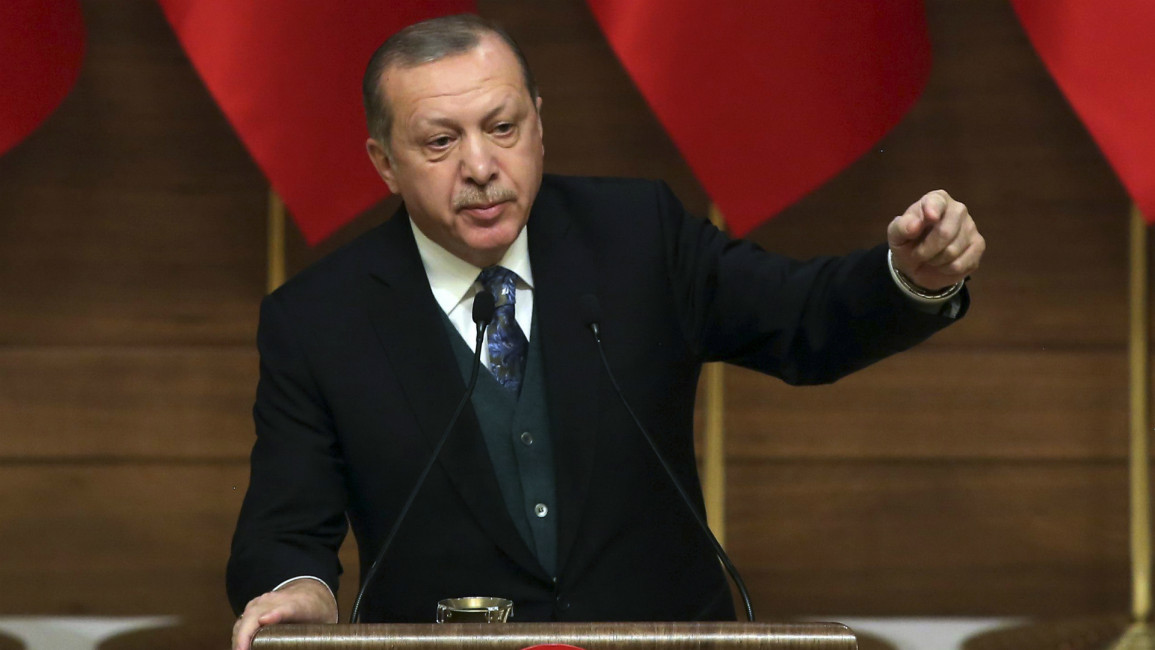'Terrorist' Assad cannot be part of Syria solution, warns Erdogan
"It is absolutely impossible to advance with Assad in Syria," Erdogan told a news conference after meeting Tunisian President Beji Caid Essebsi.
"Bashar al-Assad is a terrorist... We cannot just say this person goes on doing this job. If we do then it's unfair" to the Syrians who have been killed, he added.
Turkey has opposed Assad throughout the conflict, now in its seventh year, backing the opposition seeking to oust him and accusing the Syrian leader of war crimes.
But Ankara is a key player in efforts to end the war along with Russia and Iran, Assad's main allies.
Erdogan's comments came just days after the power brokers agreed to hold a peace congress for Syria in Russia's Black Sea resort of Sochi in late January.
A previous attempt to convene the Sochi congress in November failed following a lack of agreement among would-be participants.
De-escalation zones
A fragile ceasefire brokered at the end of last year by Moscow and rebel-aligned Ankara has been bolstered somewhat by the negotiations in Astana, which began in January and have continued in parallel to fruitless UN-led talks in Geneva.
Recent rounds of talks in Kazakhstan have focused on implementing a Russia-led plan for four "de-escalation zones" to stem fighting between the regime and rebels.
A year on from the devastating and strategically crucial regime victory in Aleppo, Damascus has consolidated control over much of the country, wresting territory from extremist factions not party to the truce, particularly the Islamic State group.
Diplomatic contacts between the major parties in the conflict have intensified in recent months, but there is no sign that Damascus and its armed opponents are any closer to a political settlement.
Since the start of Syria's war in 2011, numerous diplomatic attempts to halt the conflict have stumbled, mainly over the future of President Bashar al-Assad.
The Syrian conflict began when the Baath regime, in power since 1963 and led by Assad, responded with military force to peaceful protests demanding democratic reforms during the Arab Spring wave of uprisings, triggering an armed rebellion fuelled by mass defections from the Syrian army.
The brutal tactics pursued mainly by the regime, which have included the use of chemical weapons, sieges, mass executions and torture against civilians have led to war crimes investigations.
Rebels still insist on Assad's removal from power as a principal term for any peace deal.



